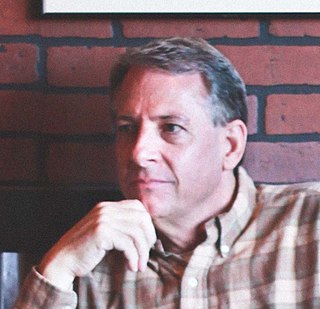A Quote by Rebecca Goldstein
There is nothing superstitious about forcing bad consequences for the hubris of paternalistic utopianism. Humanity should never be frozen into a vision of the best. A creative society must be willing to tolerate some degree of instability because creativity is inherently unstable.
Related Quotes
Philosophy, for Plato, is a kind of vision, the 'vision of truth'...Everyone who has done any kind of creative work has experienced, in a greater or less degree, the state of mind in which, after long labour, truth or beauty appears, or seems to appear, in a sudden glory - it may only be about some small matter, or it may be about the universe. I think that most of the best creative work, in art, in science, in literature, and in philosophy, has been a result of just such a moment.
Having confidence in a free society is to focus on the process of discovery in the marketplace of values rather than to focus on some imposed vision or goal. Using governmental force to impose a vision on others is intellectual sloth and typically results in unintended, perverse consequences. Achieving the free society requires courage to think, to talk, and to act - especially when it is easier to do nothing.
In short, my vision of a responsible free society is one in which we discourage evil, but do not prohibit it. We make our children and students aware of the consequences of drug abuse and other forms of irresponsible behavior. But after all our persuading, if they still want to use harmful drugs, that is their privilege. In a free society, individuals must have the right to do right or wrong, as long as they don't threaten or infringe upon the rights or property of others. They must also suffer the consequences of their actions, as it is from consequences that they learn to choose properly
We go into a relationship looking for love, not realizing that we must bring love with us. We must bring a strong sense of self and purpose into a relationship. We must bring a sense of value, of who we are. We must bring an excitement about ourselves, our lives, and the vision we have for these two essential elements. We must bring a respect for wealth and abundance. Having achieved it to some satisfactory degree on our own, we must move into relationships willing to share what we have, rather than being afraid of someone taking it.
For men to focus on controlling women's reproduction to solve a society's problems seems nothing short of mad or, at best, superstitious. But men's superstition or insanity has real and dire consequences for the women who are its object. And states, too, home in on women's bodies, perhaps to create the illusion that men are in control of uncontrollable forces. Indeed, almost all governments try to control women's bodies and regulate their appearance in some way.
I think utopianism and eschatology are really two sides of the same coin. They both assume that some massively transformative event is going to happen that's going to completely change the nature of society. They only disagree on whether we get a happy ending or all die horribly. And so utopianism is on the wane right now because at the moment most of the plausible candidates for huge historical transformation look like they're going to kill us.
Cautious, careful people, always casting about to preserve their reputation and social standing, never can bring about a reform. Those who are really in earnest must be willing to be anything or nothing in the world's estimation, and publicly and privately, in season and out, avow their sympathy with despised and persecuted ideas and their advocates, and bear the consequences.
People equate job titles to levels of creativity. We think that musicians are creative while accountants are not. Job title has nothing to do with human creativity. In fact, we all have enormous creative potential. Even those that often state with authority that "I'm not creative." With a systematic approach to building creative capacity, we all have the opportunity to create and leave a mark on the world.
The best crime stories are always about the crime and its consequences - you know, 'Crime And Punishment' is the classic. Where you have the crime, and its consequences are the story, but considering the crime and the consequences makes you think about the society in which the crime takes place, if you see what I mean.







































